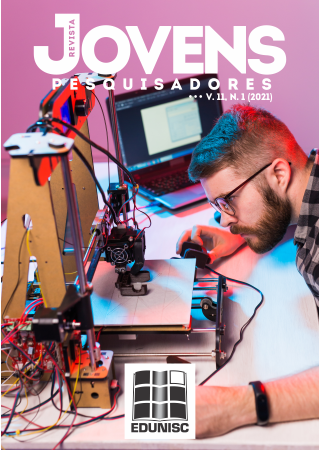THE EDUCATIONAL ROLE AND THE COMPLEXITY OF THE WORK DONE BY WOMEN IN THE ESCOLA FAMÍLIA AGRÍCOLA DE SANTA CRUZ DO SUL
Keywords:
Pedagogia da alternância. Mulheres camponesas. Saberes populares. EFASC.Abstract
This article presents a section of the research project "(De)coloniality of being/power/knowing in the Pedagogy of Alternance: systematization of an experience" and has as its objective to understand the complexity of the work done by peasant women in the rural properties and the educational role played by them in the Escola Família Agrícola de Santa Cruz do Sul (EFASC). This is qualitative research that highlights the participation of women in the Pedagogy of Alternance. To this end, we analyzed interviews with peasant women who have ties with EFASC, in the context of a doctoral thesis linked to the aforementioned project. As a theoretical and epistemological orientation, we have taken the principles of popular education and rural education as foundations, better understanding the pedagogical process of the school and the importance of the knowledge and work performed by the women farmers to guarantee that the alternance happens. From these analyses it was possible to understand that women's knowledge is not limited to domestic and care work, for they also play an educational role inside the farms, with the construction and transmission of new knowledge based on popular knowledge and knowledge for the maintenance of the survival of the family and the community. Another issue observed refers to the consciousness about education and work in the process of the pedagogy of alternance. Besides this, the analysis made it possible to understand that during the exchange and construction of knowledge inside the rural properties, the knowledge transmitted to the boys and girls is differentiated, conserving or deconstructing the social roles expected for the group of students in the dominant pedagogy
Downloads
Downloads
Published
How to Cite
Issue
Section
License
A submissão de originais para este periódico implica na transferência, pelos autores, dos direitos de publicação impressa e digital. Os direitos autorais para os artigos publicados são do autor, com direitos do periódico sobre a primeira publicação. Os autores somente poderão utilizar os mesmos resultados em outras publicações indicando claramente este periódico como o meio da publicação original. Em virtude de sermos um periódico de acesso aberto, permite-se o uso gratuito dos artigos em aplicações educacionais e científicas desde que citada a fonte conforme a licença CC-BY da Creative Commons. Creative Commons Atribuição 4.0 Internacional.
Creative Commons Atribuição 4.0 Internacional.


